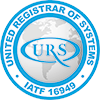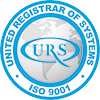Dynamic Glass Act Expected to Accelerate Smart Glass Adoption
The U.S. Government just signed the new $750 billion Inflation Reduction Act, which includes the Dynamic Glass Act, and incorporates legislation that could offer tax credits to those who use active types of smart glass technology in their construction projects starting in January 2024.
The announcement marks a momentous milestone for the smart glass industry as the legislation is expected to continue the mainstream and widespread adoption of smart glass technology across the built environment.
But what exactly is the Dynamic Glass Act and what will it mean for those in the construction industry who specify smart glass now and in the future?
What is the Dynamic Glass Act and When Does it Apply?
The Dynamic Glass Act, part of the wider Inflation Reduction Act, includes a crucial amendment to the Internal Revenue Code of 1986 that looks to make certain types of active smart glass qualify for a 30% tax credit, providing businesses immediate ROI on specifying the technology. It means that in certain situations smart glass could be eligible for rebates similar to those of solar panels, wind turbines and other types of renewable energies.
This amendment is a step in the right direction for the entire smart glass industry, and for the fight against climate change at large, recognizing the significant contributions smart glass can provide in reducing heating and cooling costs and lowering greenhouse gas emissions. According to the Dynamic Glass Act, projects that begin construction before January 1 2024 will qualify under the legislation. Tax credits will be available for the taxable years following the enactment of the act, which at this stage looks to be from 2023 onward.
How Does Gauzy’s Smart Glass Technology Fit the Bill?
The Dynamic Glass Act defines smart glass as “glass which uses electricity to change its light transmittance properties in order to heat or cool a structure”. This definition of the technology aligns with the way that Gauzy’s smart glass technology works, signaling that those working with Gauzy smart glass technology could qualify for tax credits under the new legislation.
For context, Gauzy is the industry leader in material sciences for vision and light control technologies, and the only developer and manufacturer of two of three active smart glass technologies including PDLC and SPD technology, both of which use an electrical charge to change the light transmittance properties of the glass and in turn impact heating and cooling within structures.
Solar PDLC smart glass technology, either laminated into new glass or applied as an adhesive film to existing glass, can reflect 78% of IR light and reduce temperatures within a space by up to 59°F (15°C), making buildings more green with reduced HVAC costs. Gauzy’s PDLC smart glass provides a comfortable and suitable environment for people inside, and at the same time, allows the option for privacy and openness when desired, making it a go-to choice for architects and interior designers across a range of applications including offices, healthcare, retail and more.
SPD smart glass consists of nanoparticles laminated between two panes of glass or polycarbonate. When there is an absence of electricity, the nanoparticles are scattered creating opacity that can block up to 99% of light for shade that still maintains a connection to the environment. When electricity is applied, the nanoparticles align in up to three seconds no matter the glass size, allowing transparency for full visibility and penetration of light. SPD is commonly chosen for a building’s exterior facade, as well as in the automotive space for vehicles, trains, planes and more. This technology can likewise contribute to reduced HVAC load with its shading properties. SPD may also contribute to LEED points, which pairs with builders seeking sustainable architectural models.
Did you know: The legislation further references tax credits associated with electric vehicles which have the same purpose of reducing greenhouse gas emissions. The use of SPD smart glass in passenger vehicles can reduce CO2 emissions by four grams per kilometer, and increase the driving range of electric vehicles by approximately 5.5 percent.
How Will Construction Projects Be Affected Now & In the Future?
All signs point to significant growth in the sector and this will likely be further fueled by the new Inflation Reduction Act and Dynamic Glass Act. According to Global Market Insights, the North America architectural flat glass market size could reach over USD 12.5 billion in revenue by 2027. Driven by a high demand for buildings that prioritize a modern aesthetic, access to natural light, a connection to the environment, and high visibility, glass has become a top material of choice amongst different markets and industries. As glass continues to grow as the material of choice, so too does smart glass. The global smart glass market is projected to grow from $4.6 billion in 2020 to $15.1 billion by 2030.
As the ramifications of these acts are further unpacked and implemented on an industry level, more clarity will follow on the exact outcomes of the act and how it will benefit architecture projects that specify smart glass. Those already working with smart glass should touch base with their sales representative as more information is made available. For those looking to specify smart glass into a new project, now is the time to start the conversation with your smart glass supplier of choice to ensure you are best placed to take advantage of the energy credits when they are made available.
Want to learn more about Smart Glass or receive a quote? Contact the Smart Glass experts at Gauzy today.










